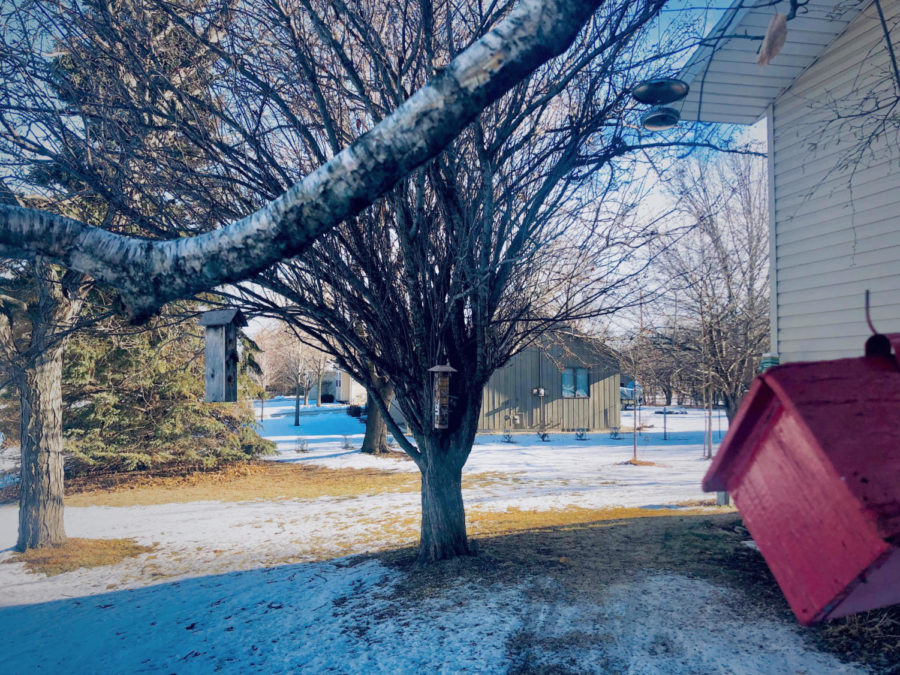Column: Winter Wildlife Calls for Assistance
Birds are more susceptible to disease in the winter, so it is important to clean your bird feeders and bird baths regularly.
December 27, 2018
Winter winds can be brutal for everyone, especially the local wildlife. Sure, they do not have to worry about things like shoveling snow, or spending too much on their heating bill, but they do worry about things such as finding reliable shelter and food. As the snow blankets the ground and the plants begin to wither, food and shelter become increasingly scarce for many creatures with paws or claws.
This winter, do a little something extra for the critters in your backyard, it is easy to do and is an excellent way to spread the holiday cheer.
1. Providing Food
Making sure your local furry and feathered friends have adequate food this winter is one of the most important things you can do for them. The Staffordshire Wildlife Trust gives suggestions for specific foods you can provide, but remember to only give out small quantities of food at a time, or else the animals will become dependent on handouts.
Birds – need foods that are high in fat to keep them warm throughout the winter. Seeds, fat balls, dried mealworms and waxworms, and halved apples are all nutritious foods for birds.
Foxes – enjoy chicken carcasses, cheese, bread, boiled potatoes, and scraps of fat.
Squirrels – everybody knows squirrels love nuts like walnuts, hazelnuts, and almonds, but they also like beans, chopped apples, carrots and spinach.
Badgers – love earthworms, which are difficult to find when the ground freezes. Give old Bucky a hand this winter by placing some cheese, lightly cooked meats, peanuts and fruit outside.
2. Cleaning Bird Feeders
Birds are more susceptible to disease in the winter, so it is important to clean your bird feeders and bird baths regularly. According to The Wildlife in Need Center, diseases like conjunctivitis are especially prevalent when many birds use the same feeder during the winter months when food is scarce. (To learn more about conjunctivitis click here.)
3. Breaking the Ice in your Pond
If you have a pond that freezes over in the winter, toxic gasses build up beneath the ice. Gently making holes in the ice releases these gasses, making a safer environment for the sweet little fish and frogs hibernating at the bottom. Never smash or pour boiling water on the ice to create holes, because there is a chance this may harm the fish underneath. Instead, place a hot pot of water on the surface to melt a hole through the ice. Alternatively, you can float a ball in the pond before it freezes, to keep the water moving and slow down the freezing over of the pond.
4. Let your garden run wild
As much as it might pain you to forgo trimming down your garden for the last time in the fall, it can actually be a wonderful way to help winter animals create their homes. Piles of leaves and sticks that are undisturbed make great burrows for little creatures to hibernate and keep warm in.
5. Make sure fresh water is available
The most basic of all the things you can do this winter, providing water can make a huge difference for animals whose usual sources of water have frozen over. Placing shallow bowls of fresh, clean water can be a huge help.
Winter is a beautiful time in Wisconsin, with the fresh snow sparkling outside, and the warm fire crackling inside. Animals during the winter do not have these amenities, however, and they need a little extra help to survive comfortably. Things as simple as letting your garden run wild and breaking the ice can mean the difference between life and death for little critters this winter.


